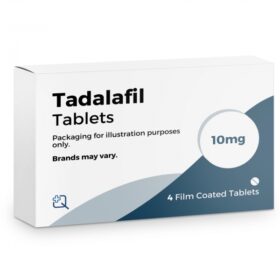- Your cart is empty
- Continue Shopping
Harness the Power of Drugs: Relieving Pain for a Better Quality of Life

Title: Harness the Power of Drugs: Relieving Pain for a Better Quality of Life
Introduction:
Pain is an unpleasant sensation that affects millions of people worldwide, hindering their ability to enjoy life to the fullest. Fortunately, modern medicine provides a range of drugs that can effectively alleviate pain, allowing individuals to regain their mobility and well-being. In this article, we will explore the power of pain-relieving drugs and how they can provide much-needed relief for those burdened by pain.
Understanding Pain:
Pain is a complex and subjective experience that can arise from various causes, such as injuries, inflammation, or underlying medical conditions. It serves as a warning signal from our bodies, alerting us to potential harm or damage. However, chronic or severe pain can significantly impact our daily lives, making it crucial to find effective ways to manage and alleviate it.
Types of Pain-Relieving Drugs:
- Nonsteroidal Anti-Inflammatory Drugs (NSAIDs):
NSAIDs, including ibuprofen and naproxen, are commonly available over-the-counter and offer relief for mild to moderate pain. These drugs work by reducing inflammation and blocking the production of pain-causing chemicals in the body. They can effectively address headaches, menstrual cramps, muscle aches, and joint pain associated with conditions like arthritis. - Acetaminophen:
Acetaminophen, also known as paracetamol, is a widely used pain reliever known for its ability to reduce fever and relieve mild to moderate pain. Unlike NSAIDs, it does not possess anti-inflammatory properties but works by affecting certain pain receptors in the brain. Acetaminophen is often recommended for headaches, toothaches, and backaches. - Opioids:
Opioids are potent pain-relieving drugs that are typically prescribed for severe acute or chronic pain. Drugs such as codeine, morphine, and oxycodone bind to opioid receptors in the brain, reducing the perception of pain. Opioids are primarily used in cases where other pain-relieving options have proven ineffective. It is important to note that opioids should only be used under the guidance of a healthcare professional due to the potential for misuse. - Antidepressants and Anticonvulsants:
Certain medications used primarily for treating depression and seizures have shown effectiveness in managing certain types of chronic pain. Antidepressants, such as selective serotonin reuptake inhibitors (SSRIs), and anticonvulsants like gabapentin and pregabalin, can help modulate pain signals in the brain. They are often prescribed for conditions like neuropathic pain and fibromyalgia. - Local Anesthetics:
Local anesthetics, such as lidocaine or benzocaine, are used to numb specific areas of the body and provide temporary pain relief. These drugs are commonly used during minor surgical procedures, dental work, or for conditions like sunburn or insect bites. By blocking nerve signals in the area where they are applied, local anesthetics provide targeted relief.
Conclusion:
Living with pain can significantly impact one’s quality of life, making it essential to find effective ways to manage and alleviate it. Pain-relieving drugs offer a powerful solution to individuals burdened by pain, allowing them to regain their mobility, productivity, and overall well-being. From over-the-counter choices like NSAIDs and acetaminophen to prescription-based opioids and specialized medications for chronic pain, these drugs provide options to address a variety of pain types and intensities. However, it is always important to consult with a healthcare professional to determine the most appropriate pain management strategy for your specific needs.
Harnessing the power of pain-relieving drugs can bring relief and restore a sense of normalcy to those suffering from pain. By understanding the different types of pain-relieving drugs and their mechanisms of action, individuals can make informed decisions about their pain management strategies. Remember, the goal is to improve your quality of life and regain control over your daily activities. If you are experiencing persistent or severe pain, consult with a healthcare professional to explore the most suitable options for your unique situation.



